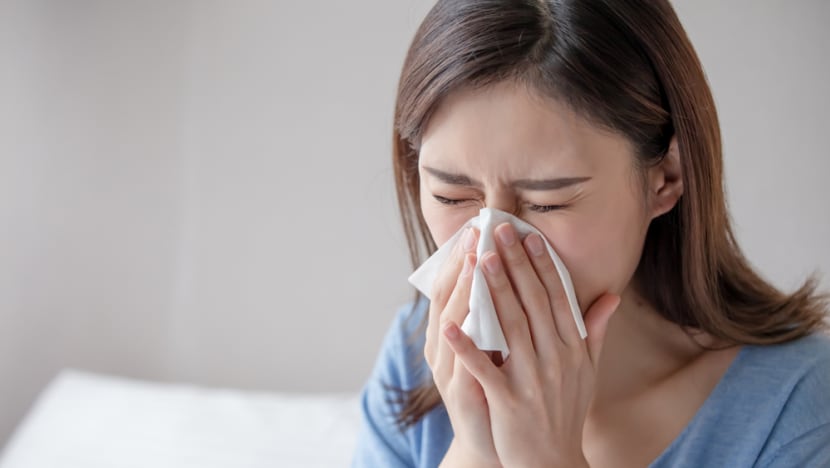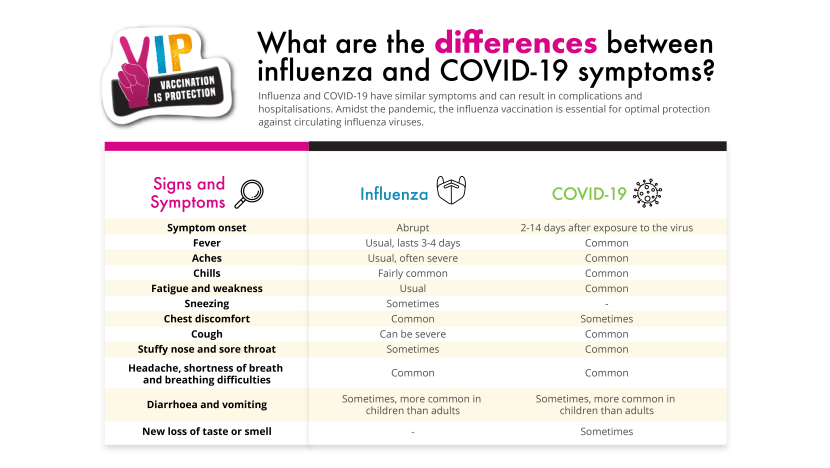Why a flu shot should remain a priority amid the pandemic
Even as Singapore ramps up its COVID-19 vaccination drive, a doctor explains why people should not overlook routine immunisations for other preventable infectious diseases such as influenza.

Getting a flu vaccine protects ourselves and vulnerable groups from the flu and its associated complications. Photo: Sanofi
Amid the ongoing COVID-19 pandemic, a question that is often asked is whether it is worth getting vaccinated against other common infectious diseases, like influenza.
According to experts, the answer is yes. As COVID-19 vaccination drives roll out across Singapore, Dr Leong Choon Kit, a family physician from Mission Medical Clinics, Singapore, said it is even more important now not to overlook routine immunisations for other preventable infectious diseases like influenza.
Dr Leong, who is also the chairman of the GP+ Co-operative Limited and director of the Class Primary Care Network and Tampines Family Medicine Clinic, pointed out that the flu season, which typically occurs from May to July and from December to February in Singapore, takes its own deadly toll.
The World Health Organisation estimates that seasonal influenza results in about 290,000 to 650,000 deaths each year due to respiratory diseases alone. In Singapore, local studies suggest that there are around 1,500 influenza-related hospitalisations and 588 influenza-related deaths each year, according to HealthHub.
Dr Leong said that certain groups of people, such as the elderly and those with underlying medical conditions, are especially vulnerable to severe flu and its potentially deadly complications.
“The flu is often perceived as a ‘mild disease’. However flu-related complications include pneumonia, bronchitis, sinus infections, ear infections and even death in serious cases. Getting vaccinated against flu will help to lower the risk of associated complications and ensure that their immune system is not weakened as a result, thereby protecting themselves against other potential infections,” he explained.
Dr Leong also shared that a study has shown that the odds of death from co-infection of both COVID-19 and influenza are twice as high compared to just COVID-19 alone.
“Furthermore, the addition of another respiratory illness on top of COVID-19 can increase the burden on the healthcare system, placing it under more stress. Vaccination for preventable diseases such as influenza can help reduce the demand on the healthcare system,” he said.
INFLUENZA AND COVID-19 SYMPTOMS

Although there are some key differences between COVID-19 and the common flu symptoms, such as a loss of smell and taste in the former, their similarities are another reason why getting vaccinated against flu is recommended.
“By getting the flu vaccination, doctors are able to differentiate COVID-19 from seasonal influenza as early as possible – reducing the spread of infection among the community,” said Dr Leong.
According to the United States’ Centers for Disease Control and Prevention (CDC), common symptoms that COVID-19 and influenza share include fever, cough, shortness of breath, fatigue, sore throat, runny or stuffy nose and body aches.
However there are some key differences between influenza and COVID-19 symptoms. Dr Leong said the latter might result in a loss of taste or smell, which does not happen during a flu infection.

“Most people who get the flu will recover in a few days to less than two weeks but there are more severe complications associated with COVID-19, such as blood clots in veins and arteries and long-term damage to the body,” he added.
WHO SHOULD GET VACCINATED
Under the Ministry of Health’s National Adult Immunisation Schedule (NAIS), one dose of influenza vaccination is recommended per year. It is “strongly recommended” for vulnerable groups.
According to Dr Leong, vulnerable groups include the elderly, young children, people with a weakened immune system and existing chronic conditions like asthma, heart disease or diabetes. Other at-risk groups include children and teenagers aged six months to 18 years who are receiving long-term aspirin therapy as well as pregnant women in their second or third trimesters.
Healthy individuals such as healthcare workers, domestic workers and caregivers are also recommended to go for annual influenza vaccination as they may be regularly exposed to different flu viruses, Dr Leong said.
“Flu viruses are constantly evolving, as is our immunity to them. Getting a flu vaccine ensures consistent protection from the virus – protecting ourselves and vulnerable groups from the flu and its associated complications,” he said.
SUBSIDIES AVAILABLE
The influenza vaccine is currently subsidised under the National Childhood Immunisation Schedule and NAIS. The immunisation scheme allows individuals to receive highly subsidised vaccinations at Community Health Assist Scheme general practitioner (GP) clinics.
Dr Leong advised people to check if they meet the criteria for subsidised vaccinations and speak to their GPs or family physicians to find out more or schedule an appointment.
The flu vaccination is administered as a single-dose injection through the skin into the muscle or under the skin.
“One dose of the flu vaccine is required for adults while children younger than nine years old may require two doses for adequate protection. Your healthcare provider will inform you if your child needs two doses,” Dr Leong shared.
Getting a flu jab is safe, he said, but there may be minor side effects such as soreness in the affected area, muscle aches, runny nose, low-grade fever and sore throat.
“These side effects begin soon after the flu shot and usually last one to two days. Some individuals may be at risk of developing allergic reactions to a flu vaccination. We recommend consulting a doctor before getting vaccinated,” Dr Leong added.
Individuals should also consult a doctor to find out their eligibility for influenza vaccination during the current COVID-19 vaccination drives.
Debunking the misconception that the influenza vaccine is a travel vaccine and is not needed if people are not travelling, Dr Leong said: “Influenza is a disease that circulates year-round in tropical countries like Singapore. It affects countries every year and takes its own deadly toll. While waiting for the COVID-19 vaccination, do your part to protect yourself and your loved ones from influenza by getting vaccinated.”
Speak to your GP or family physician to book an appointment and to find out more about influenza vaccinations.












